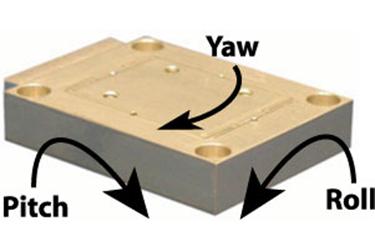Measuring Scanning Motion Flatness With AFM
By Shannon Ghorbani and Beau Brossman, Mad City Labs

When performing measurements with scanning probe microscopes, stylus profilers, and other metrology systems that require samples to be precisely scanned, nanopositioning stage movement should be optimized to eliminate out-of-plane motion. AFM users often prioritize numerous factors before considering the impact scanning motion flatness can have on their measurement. When flatness issues arise, they may mistakenly attribute them to faulty equipment, poor programming, or user errors.
If measurement data does appear compromised, the only way to determine whether flatness of the scanning motion is the cause is to execute a flatness measurement using a known sample and technique. Importantly, users want to emulate their experimental measurement expectations when testing the stage. How the user expects to use the instrument and the way it is tested can define how that system could potentially interact with its environment, how the stage is mounted, etc. Each of these elements impacts the instrumentation’s usage, as system design often is application driven.
Get unlimited access to:
Enter your credentials below to log in. Not yet a member of Photonics Online? Subscribe today.
